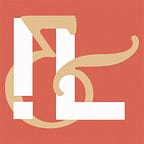About The Project
Our Global Political Context
The Islamic Context
The Challenge
Our Global Political Context
In 2016, we watched the world’s most stable liberal democracy elect a right wing extremist who campaigned and won on an openly illiberal agenda. Trump’s presidency will energize and normalize illiberalism worldwide — be it the same strand that Trump represents (figures like Putin and the European far-right), or the opposite extreme (such as ISIS, who welcomed his victory). Trump’s foreign policy is transactional and dictator-friendly, which will add more fuel to the Middle East’s many fires.
The threat posed by a global empowerment of illiberalism is real and imminent, but there is a silver lining. Trump’s victory is a rallying cry for the defenders of liberal democracy and human rights across the world. Trump’s election has already jolted many out of complacency, to a dogged determination to fight for open societies.
Our project, although initially aimed at Muslims, may prove relevant to all those who aspire for liberty. The broad themes of the project: the importance of indigenization, understanding radicalization, standing up for liberal values, building strong societies, and promoting a continuous process of self-examination and reform — these themes have always been relevant, but are now more relevant than ever.
Perhaps our perspective as Arab Muslims who have an intimate, first-hand experience with authoritarianism, radicalization, and corruption may prove invaluable. Some of the greatest liberal voices of the 20th century grew up under tyranny — one might remember Hannah Arendt, Ludwig von Mises, Friedrich Hayek, Viktor Frankl, Isiah Berlin, Vaclav Havel, and — perhaps more relevantly — Angela Merkel, who was raised in Soviet-era East Germany.
Trump’s rise validates our worldview — illiberalism is rising worldwide for lack of more of our kind of work. A Trump presidency increases the demand for our work, the market size for our ideas, and their urgency and relevance. This is nothing to gloat over — it is the worst situation to be in — but it is already happening, and we must rise to the challenge.
The Islamic Context
The lack of a liberal Islamic tradition is a major global problem. The Islamic mainstream today suffers from the rise of certain interpretations that are authoritarian, dogmatic, anti-progressive, anti-rational and often opposed to basic recognition of shared humanity. It is impossible to separate the lack of democratic progress in the Arab world, the fragility of Muslim majority democracies, and the existence of violent Islamist extremist ideologies from this.
It wasn’t always that way — Islam was always pluralistic, and a humanistic tradition does indeed exist. But Islam’s diversity has suffered from decades of tyranny that assaulted free speech, suffocated civil society, persecuted thinkers, and stifled native reform. Additionally, certain Muslim states, in the pursuit of political objectives and soft power, exported highly illiberal versions of Islam, making them mainstream.
As a result, the Islamic world today suffers from a very short menu of ideas — most of the available material on Sunni Islam today is highly influenced by illiberal and dogmatic interpretations, whilst alternatives are suppressed or ignored. Nearly 500,000 online searches a month return radical Islamist material, and young Muslims who try to research Islam on their own will find predominantly Salafi material.
The Challenge
Can we, as Muslims, come up with our own convincing Islamic arguments for pluralistic open societies? Not only for co-existing as minorities but as fully engaged and invested co-citizens — whether as majorities or minorities?
This project is dedicated to the indigenization of liberty in the Arab & Muslim worlds — in particular, the re-discovery, development, and promotion of an Islamic tradition that vehemently and effectively rejects tyranny and terrorism, dismantling the ideas upon which they are built, and presenting an authentic alternative.
